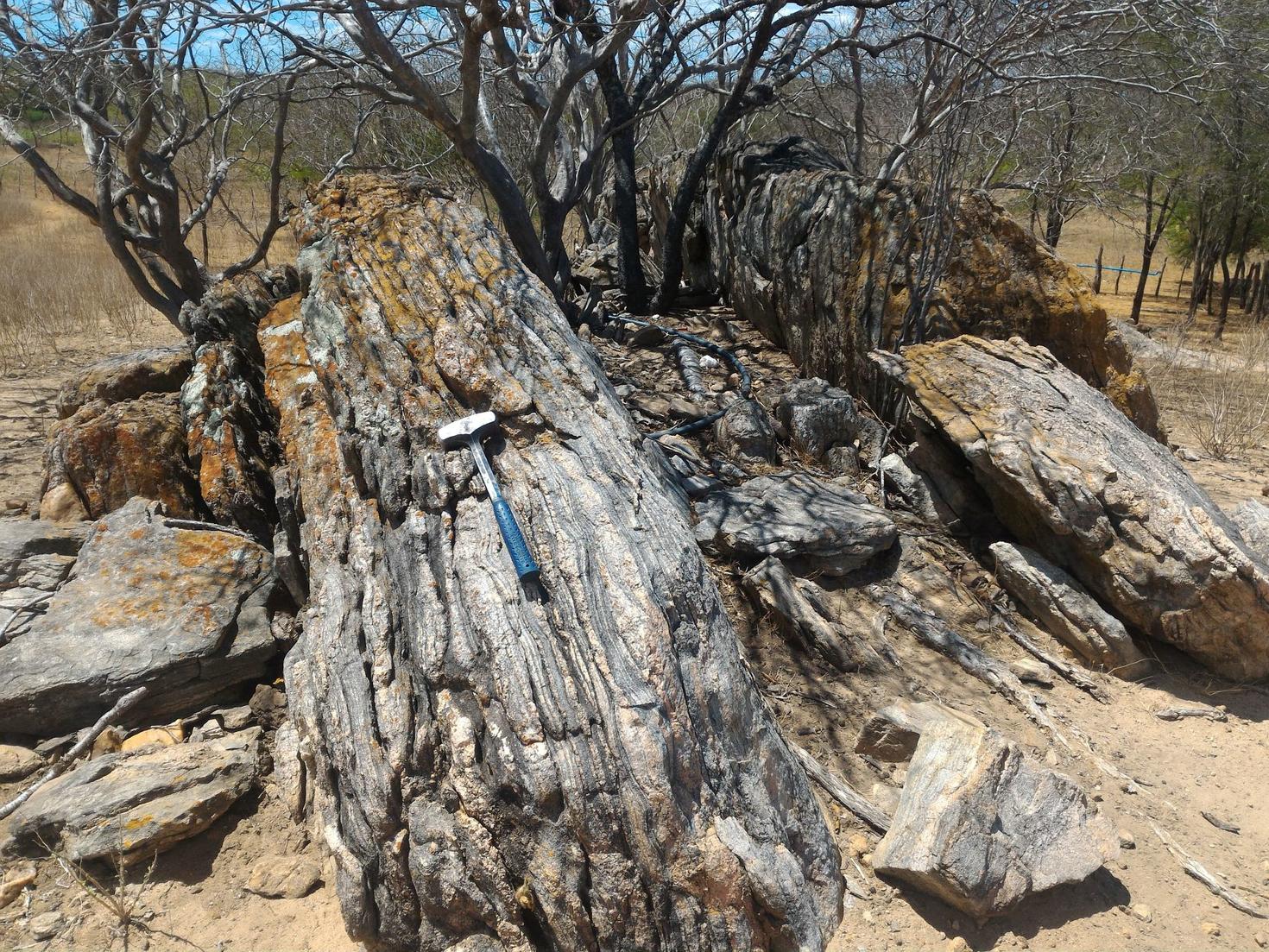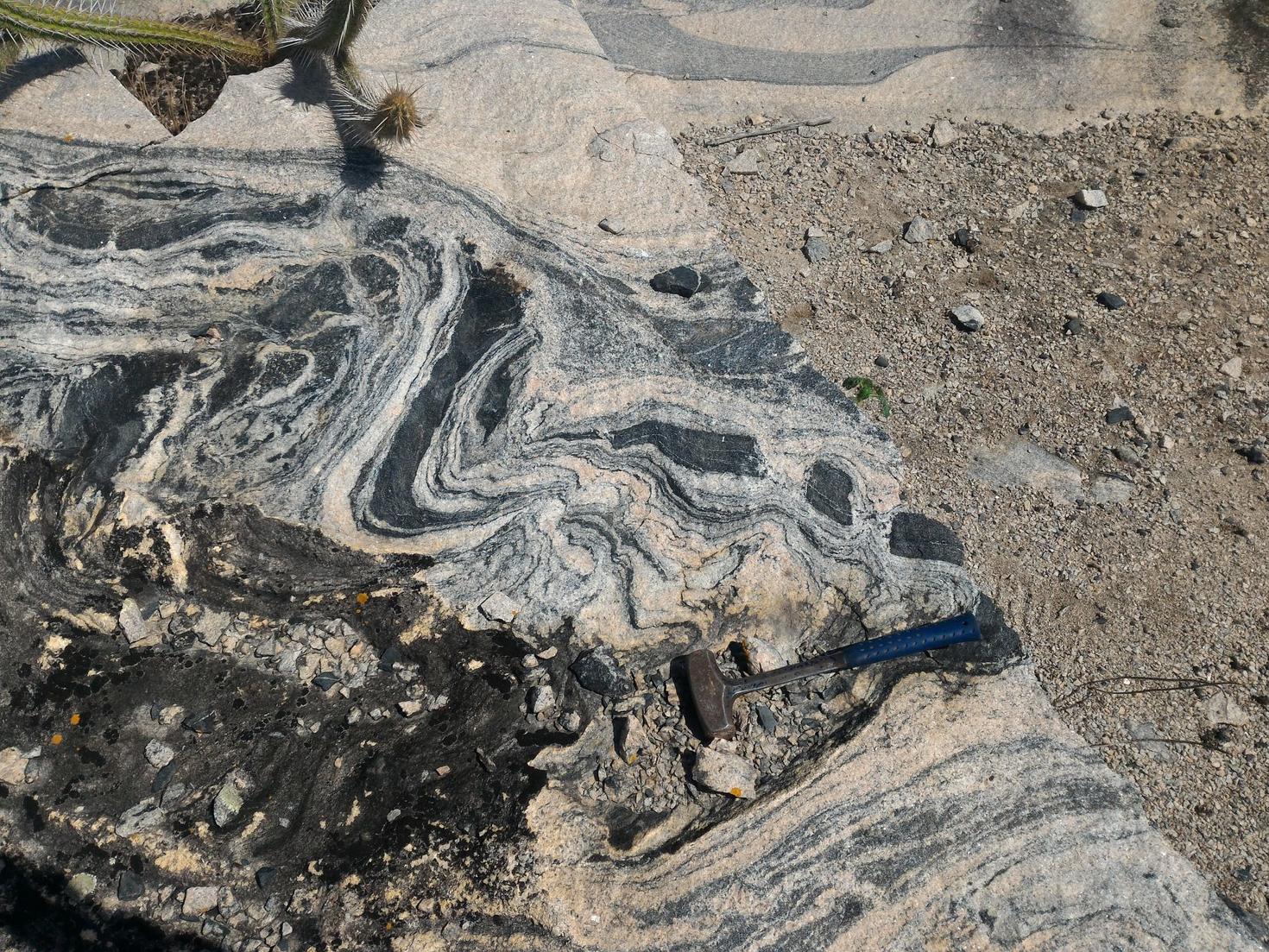Born and raised in Brazil, Victor Garcia has always been passionate about science. However, it wasn't until he took an introductory geology course during his undergraduate studies that he discovered his true calling. Fascinated by the Earth’s history, he pursued a master’s degree at the University of Brasília, where his involvement in research deepened his desire to continue on to doctoral studies. “The more I got involved with questions that didn’t yet have answers, the more motivated I felt to find them,” Victor recalls.
When it came time to choose a PhD program, Victor was particularly drawn to the work of Professor Jonathan O’Neil, an expert on some of the oldest rocks on Earth. After reading one of Professor O’Neil’s papers on Archean rocks—formed over 2.5 billion years ago—Victor saw an exciting opportunity to apply this research to similar rocks in Brazil’s São José do Campestre Massif, located in the northeastern part of the country.
“It's uncommon for students to approach me with their own fully formed research ideas,” says Professor O’Neil. “But Victor had already identified promising samples and proposed a well-defined project. His intuition was correct—those samples turned out to contain the first evidence of an enriched mantle formed more than 4.4 billion years ago. This discovery fills a critical gap in our understanding of the Earth’s early mantle evolution.”

Working with his Brazilian collaborator, Professor Elton Dantas, Victor co-authored a landmark paper titled Rare evidence for the existence of a Hadean enriched mantle reservoir, published in Geochemical Perspectives Letters. This paper details the diverse analytical methods leading to the discovery of this ancient, enriched mantle reservoir. The study used advanced techniques, like column chromatography and mass spectrometry, to analyze faint isotopic signatures in ancient rocks—detecting elements at parts-per-million levels to trace Earth’s earliest geochemical processes.
This project was not without its challenges. Victor’s round-the-clock work with mass spectrometers—a highly sensitive instrument with thousands of components—required dedication to precision and problem-solving. With support from Professor Hanika Rizo at Carleton University, Victor was able to troubleshoot technical issues and ensure accurate results. The column chemistry process posed additional challenges, with each stage taking up to 15 hours. Even the laborious chemistry stages were optimized; by applying pressure during the separation process, Victor cut down processing times from several days to just a few hours.

Throughout his five-year PhD, Victor demonstrated resilience and perseverance, navigating disruptions caused by the COVID-19 pandemic and periods when his supervisor was on academic and parental leave. His hard work has paid off: “I have the utmost trust in the quality of the data he produces,” says Professor O'Neil.
Victor is eager to pursue a career as an academic researcher and professor. As an instructor and a teaching assistant in geochemistry and igneous petrology, he discovered a passion for education that complements his excitement for research. He plans to build on his doctoral work and continues to explore new avenues in isotopic analysis and early Earth dynamics.
In his downtime, Victor enjoys running, biking, rock climbing, hiking and playing video games—an adventurous spirit that mirrors his scientific curiosity. “The journey has been challenging but incredibly rewarding,” he reflects. “I’m excited to keep exploring the dynamics of the early Earth and to contribute to our understanding of the Earth’s origins.”
Read more: